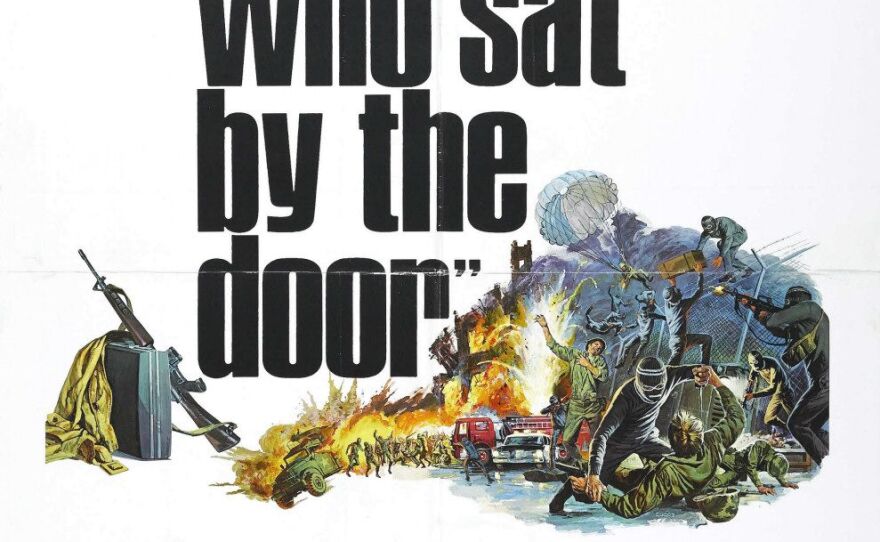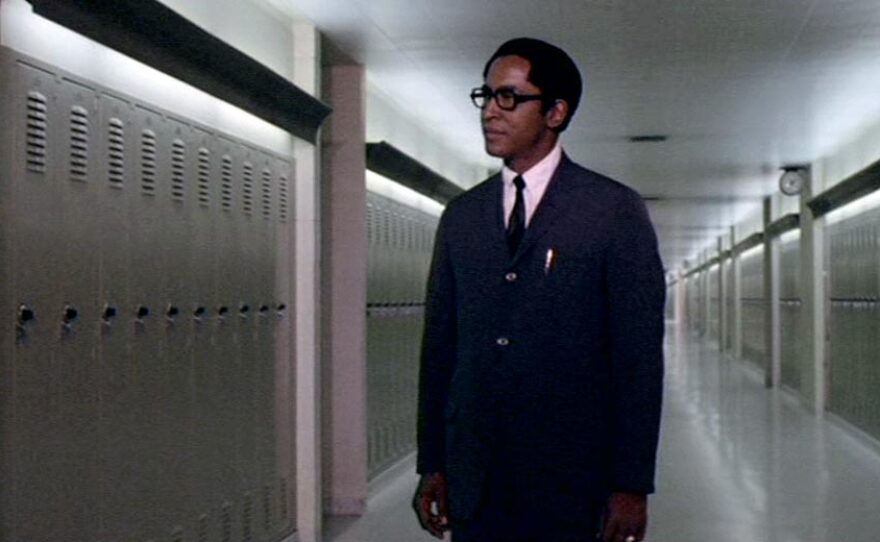David F. Walker's graphic novel on The Black Panthers comes out on Jan. 19. He reminds us that today's Black Lives Matter protests are a manifestation of anger and frustration that has been brewing for centuries and those feelings were brilliantly conveyed in both the film "The Spook Who Sat By The Door," which was based on Sam Greenlee's book and was only briefly released in 1973.
Greenlee's controversial book gave us the story of a man symbolically named Dan Freeman (played by Lawrence Cook in the film) who becomes the first Black CIA agent (his initial job is as head of Xeroxing in the basement of the building), takes advantage of all the training the organization offers and then leaves to create a revolutionary army that has echoes of what The Black Panther Party tried to do.
David F. Walker is author of the upcoming "The Black Panther Party: A Graphic Novel," and has also written for the "Shaft" and "Luke Cage" comics. He calls "The Spook Who Sat By The Door" his favorite book and movie.

The film was directed by actor Ivan Dixon (best known to most for his role in the TV show "Hogan's Heroes") and it faced all sorts of obstacles. The story was set in Chicago, but Mayor Richard Daley refused to give them permission to shoot there. But Gary, Indiana had its first black mayor in Richard Hatcher, who welcomed Dixon and his production team. Dixon managed to pull off a few clandestine handheld and pick-up shots in Chicago.
The production faced financial problems as well. It ran out of money before shooting was complete but footage of the riot and a nightclub scene convinced United Artists that it could be financially successful if marketed as a Blaxploitation film (films targeted at Black audiences). Herbie Hancock gave the film a great score.
The film was a hit but then seemed to vanish and the careers of Dixon, Greenlee and Cook seemed to stall. Walker said that United Artists was pressured to pull the film from distribution and relinquished all rights to the film back to the creators (an almost unheard of thing) but they could never get the film back in cinemas.
"Part of the reason the FBI worked to suppress it was there was always this fear of the 'race war,'" Walker explained. "And it was always this fear that something would instigate Black people to finally rise up and take arms and declare war against the white man. And that's been this fear, this white fear in America since before America was America, when it was still part of the British colonies. And I think that that terrifies people so much, and especially when it's placed in a context of, oh, yeah, they're justified."
Here's are a pair of lines from the film's main character, Dan Freeman, that might resonate today with some edge: "You have just played out the American dream ... and now, we're gonna turn it into a nightmare” and the more compelling, "This is not about 'hate white folks.' This is about loving freedom enough to die or kill for it if need be."

"The Spook Who Sat By The Door" is one of the few films that presented a Black organization that looked something like The Black Panthers. Walker considered why a group as iconic as the Panthers has been so rarely depicted on screen.
"I think that it comes down to the fact that if you were to write a story, for lack of a better term, a traditional narratives of the Black Panther Party that cast them in the role of the good guys, well, then the bad guys are the United States government," Walker said.
"And we're talking about a level of corruption on a governmental level, both federal, state and municipal. That is kind of mind boggling when you really think about it. It's not as mind boggling now because we're seeing some of these things play out on the on the news on a daily basis, the acts of police brutality, the cover ups that are going on, the lack of transparency. All this was going on in the '60s and before that and since then. But, I think that in terms of popular entertainment, it's difficult for a lot of people to get down with. How do we show that? I think that part of the problem dealing with things like systemic racism is that it forces people to take a look at their own culpability. It's not just systemic racism. It's also sexism and homophobia and all the other forms of oppression. Once you acknowledge it, you have to look at your own culpability. And sometimes culpability is merely inaction or apathy. And nobody wants to face that," Walker said.
"The Spook Who Sat By The Door" is not officially streaming anywhere (and that is a true shame) but there are versions of it on YouTube. This one seemed to be the best quality. I urge you to check it out because some of what it addresses remains as bold and as remarkably relevant today as it was in 1973.
You can listen to my full interview with Walker, plus a bonus interview on The Black Panthers, on my Cinema Junkie Podcast.








